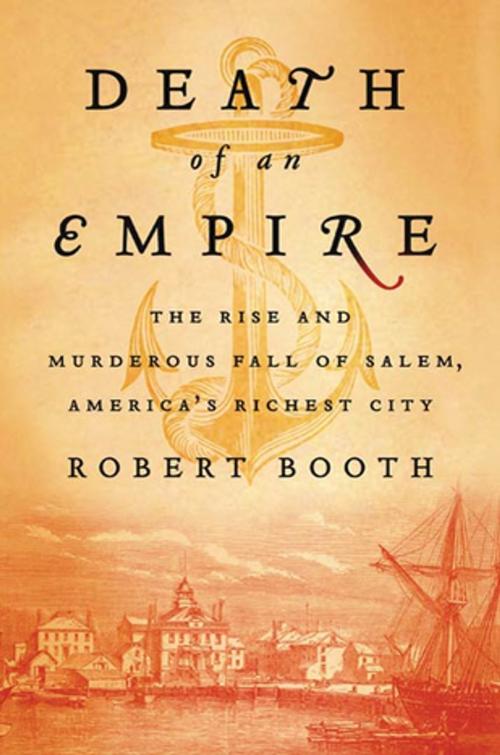Death of an Empire
The Rise and Murderous Fall of Salem, America's Richest City
Nonfiction, History, Americas, United States, 19th Century| Author: | Robert Booth | ISBN: | 9781429990264 |
| Publisher: | St. Martin's Press | Publication: | August 16, 2011 |
| Imprint: | Thomas Dunne Books | Language: | English |
| Author: | Robert Booth |
| ISBN: | 9781429990264 |
| Publisher: | St. Martin's Press |
| Publication: | August 16, 2011 |
| Imprint: | Thomas Dunne Books |
| Language: | English |
SALEM has long been notorious for the witch trials of 1692. But a hundred years later it was renowned for very different pursuits: vast wealth and worldwide trade. Now Death of an Empire tells the story of Salem's glory days in the age of sailing, and the murder that hastened its descent.
When America first became a nation, Salem was the richest city in the republic, led by a visionary merchant who still ranks as one of the wealthiest men in history. For decades, Salem connected America with the wider world, through a large fleet of tall ships and a pragmatic, egalitarian brand of commerce taht remains a model of enlightened international relations.
But America's emerging big cities and westward expansion began to erode Salem's national political importance just as its seafaring economy faltered in the face of tariffs and global depression. With Salem's standing as a world capital imperiled, two men, equally favored by fortune, struggled for its future: one, a progressive merchant-politician, tried to build new institutions and businesses, while the other, a reclusive crime lord, offered a demimonde of forbidden pleasures. The scandalous trial that followed signaled Salem's fall from national prominence, a fall that echoed around the world in the loss of friendly trade and in bloody reprisals against native peoples by the U.S. Navy.
Death of an Empire is an exciting tale of a remarkably rich era, shedding light on a little-known but fascinating period of Ameriacn history in which characters such as Nathaniel Hawthorne, John Quincy Adams, and Daniel Webster interact with the ambitious merchants and fearless mariners who made Salem famous around the world.
SALEM has long been notorious for the witch trials of 1692. But a hundred years later it was renowned for very different pursuits: vast wealth and worldwide trade. Now Death of an Empire tells the story of Salem's glory days in the age of sailing, and the murder that hastened its descent.
When America first became a nation, Salem was the richest city in the republic, led by a visionary merchant who still ranks as one of the wealthiest men in history. For decades, Salem connected America with the wider world, through a large fleet of tall ships and a pragmatic, egalitarian brand of commerce taht remains a model of enlightened international relations.
But America's emerging big cities and westward expansion began to erode Salem's national political importance just as its seafaring economy faltered in the face of tariffs and global depression. With Salem's standing as a world capital imperiled, two men, equally favored by fortune, struggled for its future: one, a progressive merchant-politician, tried to build new institutions and businesses, while the other, a reclusive crime lord, offered a demimonde of forbidden pleasures. The scandalous trial that followed signaled Salem's fall from national prominence, a fall that echoed around the world in the loss of friendly trade and in bloody reprisals against native peoples by the U.S. Navy.
Death of an Empire is an exciting tale of a remarkably rich era, shedding light on a little-known but fascinating period of Ameriacn history in which characters such as Nathaniel Hawthorne, John Quincy Adams, and Daniel Webster interact with the ambitious merchants and fearless mariners who made Salem famous around the world.















